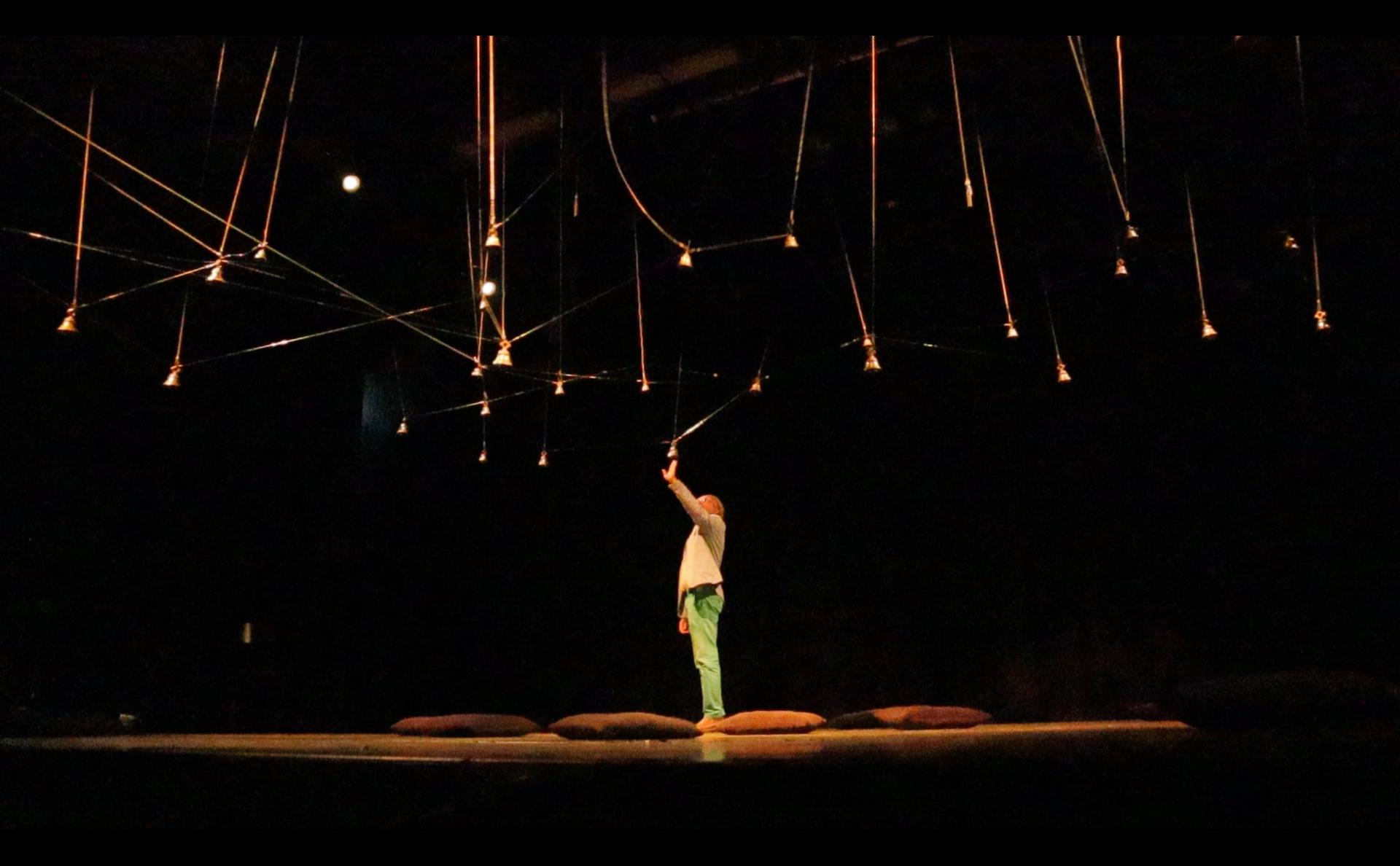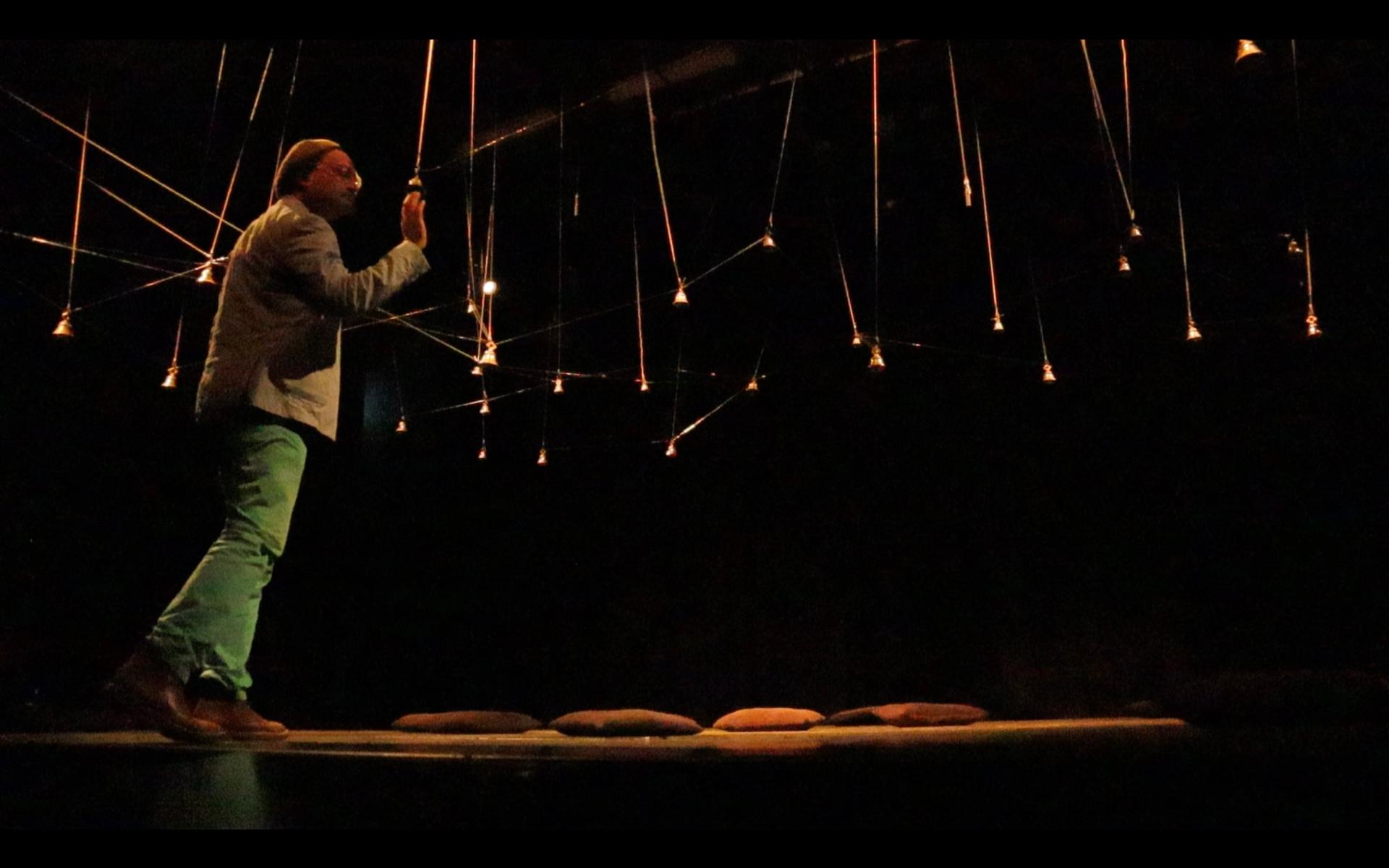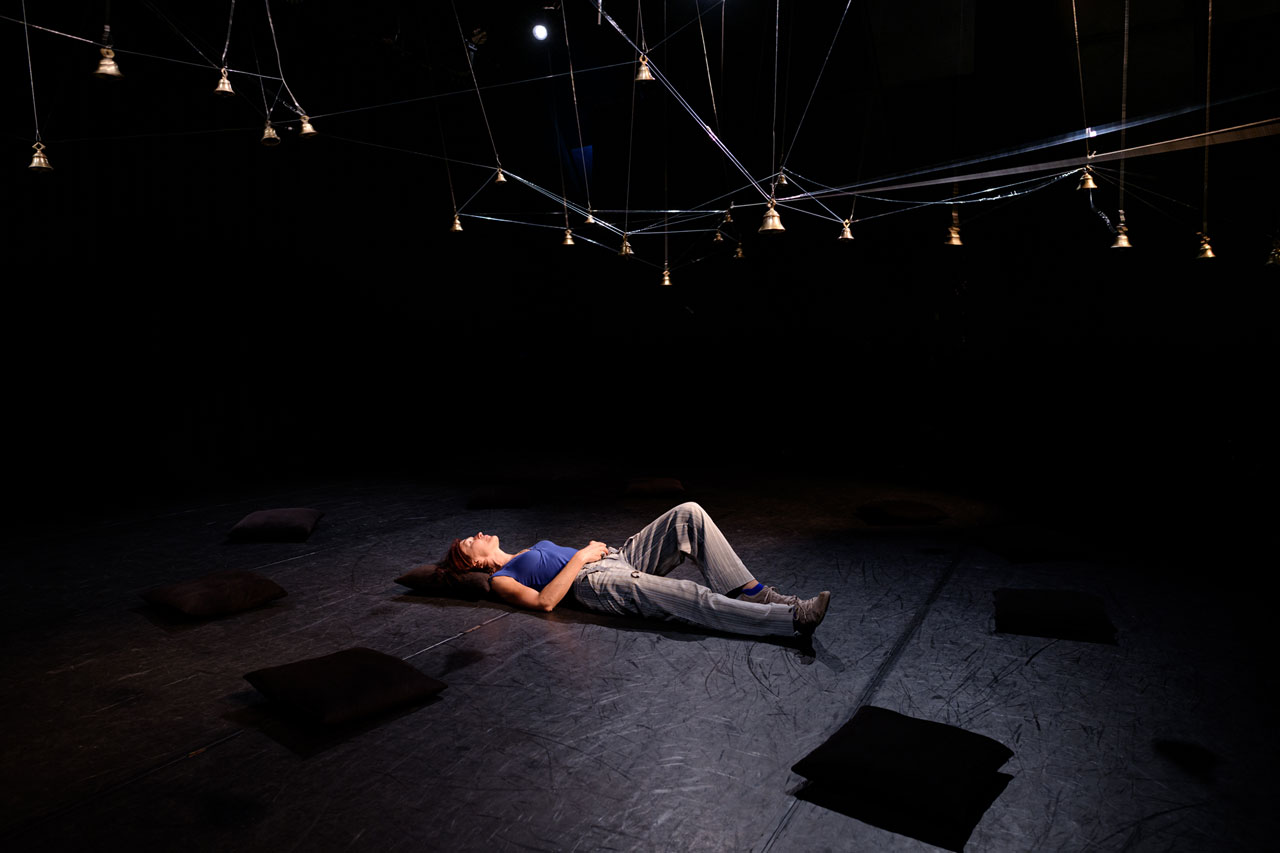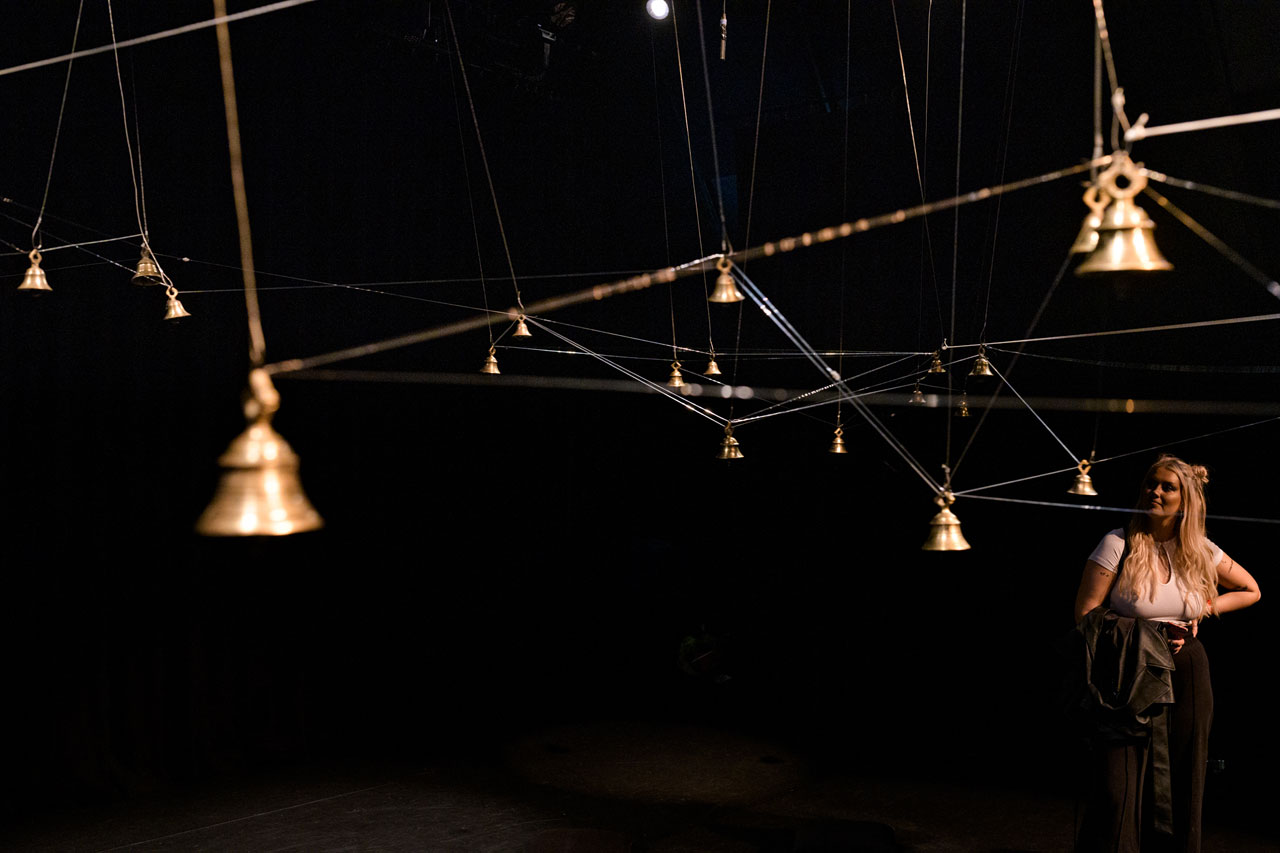Sound Across
Basic information
Project Title
Full project title
Category
Project Description
Sound Across is a young and emerging platform and public forum based in The Hague, Netherlands, that explores the themes of democracy, equity, and environment in contemporary discourses across borders and cultures, aiming to foreground an ethos of reciprocity and community-building through creative exchanges in Dutch (and in European) cultural and creative industries, design and research, contributing with new knowledge in the field of sonic/media arts with a decolonial approach.
Geographical Scope
Project Region
Urban or rural issues
Physical or other transformations
EU Programme or fund
Which funds
Description of the project
Summary
At the time of writing this proposal, many societies the world over are being impacted by intensified conflicts born out of rising nationalism, and racial tension. Listening, as our curatorial note for The Listening Biennial (Berlin, London, and other venues across the globe, 2021) suggests,1 may enact an intervention in this conundrum to offer a reconciliatory and peace-building platform. At the core of this statement is the belief that, listening practice, when employed as a mode of engagement with the self, the sensate subjective formation it entails is able to engage with the community in an inclusive manner. In the implementation of conflict resolution, acceptance and reciprocity are essential, and above all, the ability to listen – as the proposed project believes. These values are, I argue, useful for us to navigate the challenging times ahead, which will certainly be marked by scarcity of natural resources and unprecedented human-made environmental decay, leading to Anthropocenic calamities. Having this background and context, I introduce the project Sound Across, which is a young and emerging platform and public forum based in The Hague, Netherlands. Sound Across explores the themes of democracy, equity, and environment across borders and cultures, aiming to foreground an ethos of reciprocity and creative exchanges in European creative industries, design and research as well as in everyday practices, contributing with new knowledge in the field of sound media with a decolonial approach. Here decoloniality refers to an equitable and reciprocal critical engagement with the sonic cultures of the former colonial subjects from the Global South communities (e.g. South Asia, Middle East, Africa), many of which enrich the diasporic population in Europe. Sound Across project conducts a series of workshops in relevant arts and humanities institutions and organization in Europe as a community practice to encourage social reciprocity.
Key objectives for sustainability
Sound Across incorporates two complementary practices of listening that are respectively termed hyper-listening and co-listening – they are useful when performed together to counteract the societal crises of inclusion, sustainability and integration in today’s Europe. Sound Across exposes the methodology and research process of a listening-driven workshop series drawing on these ideas through their various iterations that employs an inclusive and contemplative listening practice as an approach to community building, co-resonating and conflict resolution. Philosopher Gemma Corradi Fiumara urges, a propensity to listen to others, without making immediate judgments may potentially lead to bridge the troubled water of difference, since, as the UNICEF programing guide on peace-building argues: the root of all conflicts is essentially embedded in a lack of ability to listen to the other. In this context, hyper-listening and co- listening operate as a set of individual and collective exercises and experiments in sonic medi(t)ation that intend to encourage listening to self and others without making immediate judgement. The idea revolves around mindful listening as a conscious and sentient act to compassionately engage with the self and the surrounding environment, and the bodies that inhabit this environment, namely humans, plants, animals, and other sentient beings. Departing from the Western modernist idea of listening as a humanistic practice for navigating the everyday environments as a form of sensory orientation from a cartographic and utilitarian perspective by immediate meaning-making to arrive at conclusions and for surviving, Sound Across underscores how hyper-listening and co- listening involve the mindful engagement with the body of a situated self, as well as the people and non-human others inhabiting the site of the body by generating a sense of interconnectedness, social collectivity and co-dependence in European societies.
Key objectives for aesthetics and quality
Sound Across aims to build a sense of solidarity, social sustainability and collective wellbeing in a volatile time in Europe. The interest in mindfulness and sonic meditation foreground an affective mediation of the self and others as common sonority formed by an attentive and context-aware listening towards conflict resolution for a sustainable society and collective co-existence. This is achieved by facilitating an aesthetic melange of Global South cultural practices and European ethos. For example, in its first year in 2021, Sound Across produced Dhvāni - a series of self-regulating, responsive and autonomous installations driven by AI and Machine Learning, incorporating ritual and traditional practices from South Asia, e.g. temple bells, Buddhist Gongs, wind chimes, and Ghungroo, among others. The project emerges from a (re-)search and quest for a re-listening to and re- telling of South Asia’s rich history to the world in the contemporary moment of crisis, informing the AI-driven surveillance and controlled societies of today about the values of inter-connectivity, community and reciprocal ways of life, often found in the ritual practices of the Global South. The work aims to envision a geological equity to hear the Global South, rendering the linear curves of Western-modernity- dominated sense of temporality a cyclical one by refocusing on memory, and redefining the local and traditional arts, and the indigenous cultural practices. This temporal mélange may help in finding answers to the crises of today, such as climate breakdown, and global inequality. Dhvāni in its exhibition aims to create fertile, evolving and autonomous situations, which are relational, performative, and radically participatory, whereby the subjectivity of the audience are considered in an inclusive manner to encourage a reciprocal approach in a shared artistic experience through a network of traditional objects from Asia, such as temple bells or indigenous wind chimes.
Key objectives for inclusion
As a local platform and a global forum, Sound Across bridges the sonic worlds of Global South and Europe through social and artistic gatherings (/workshops, symposium, and group events) based on listening exercises (both individual and collective) and sonic meditations. These activities are aimed at exercising inclusion (equal opportunities, public participation, citizen engagement, co-listening) as well as, access to mainstream knowledge production and discourse for the marginalized (Global South) communities in Europe, and affordability of knowledge instruments, such as university education, library access, and voicing opinions. Global South houses some oldest and time-tested cultural practices in music, performative and sonic realms, which are not yet well known in European artistic and curatorial fields. Some of these aesthetic practices, where a pre-modern concept of listening existed, were as intricate as its global counterparts in Europe, however ignored in the Eurocentric fields of artistic, sonic and musicological histories; but they have the capacity to offer new knowledge and methodologies in Europe's cultural milieu. In the Sound Across forum, such non-Western practices and thoughts will be unpacked through a decolonial ear of listening on an equitable platform of exchange and working together strengthening the international field of European cultural and aesthetic practices leading to a sustainable and equitable field of social cohesion and coexistence. The project aims to critically engage with the complex worlds of the Global South and its historic interaction with the North. The definition of global interaction covers collaborative practices, co-creation and contextualization of audiovisual forms and manifestation, recordings, languages, ritual and traditional relics to underscore a reciprocal encounter rather than a one-sided reception. The project will enrich the cultural, music and creative industry in Europe by co-listening.
Results in relation to category
Sound Across spreads social awareness around the values of co-existence and reciprocity in the European societies by conducting a series of workshops in collaboration with leading arts and humanities institutions and organizations in Europe to mobilize the idea of social participation and co-listening to be realized as a community art practice. The project promotes the practice of engaged listening as a valid tool to spread an awareness of inclusion and contemplative acceptance of the other. The project helps recognizing the others in our surrounding not as bodies of conflict, but extension of us as a larger common.
We have already conducted a number of such workshops titled “Hyper-listening: praxis”, in various cities of Europe, namely, Copenhagen, Brussels and Vienna. Sound Across also organizes scholarly gatherings and exhibitions. In its first year in 2021, installation Dhvani was exhibited at Rewire Festival in The Hague. For each year, the project covers one yearly 14-days long gathering of 5 Global South and 5 European artists (/researcher) in a Global South venue, and subsequently in European venues, for extensive dialogue, seminars, fieldwork, and public presentations (e.g. sound performances/exhibitions) following up with a group exhibition. In 2022 – 2023, we have an agreement with the revered Kochi-Muziris Biennale in India to host the first such gathering in which the 5 selected European artists will be taking part in the workshop and produce new works. The project activities will be enriched by inquiring the trade and cultural exchanges between East and West, inspecting the early traces of globalization and intercultural confluences between South Asia and Europe through the lens of cultural practices, employing various intersecting method and approaches, including sensory ethnography, active listening, field recording, decoding, classification, (un)mapping, analysis, translation, contextualization, radio broadcast and community art practice.
How Citizens benefit
In Europe, cultural practices from the Global South are always marginalized. For example, artists and scholars from South Asia, Middle East, and Africa - broadly known as parts of the Global South, have largely remained underexplored, although this part of the globe is one of the world’s largest producers of film and audiovisual media (e.g. South Asia), with a formidable presence as emerging giants in film, media arts, and cultural production. Even though, Europe houses large diaspora population from the Global South, and such communities have made Europe their home, the cultures of these immigrant communities are astoundingly absent in European field of arts and mainstream social life. Rather, their everyday practices, cultures and environments remain highly marginalized and gentrified in the privileged discussion of culture in European contemporary art and social discourses, and in their creative industries. The mainstream festivals and conferences and other events of social gatherings in Europe have negligible participation from these communities, and there is almost no representation from these communities in the canonized publications and scholarship. Does it mean that the members of these communities can’t think creatively in the sensory modalities of sound? Or, are these people mere “noise” in the Dutch social fabric heard through a colonial ear? A profound lack of representation from Global South artists and thinkers and their equitable intellectual and creative participation in the sound arts industries in The Netherlands and in Europe, are a problem. The project Sound Across addresses this problem and tries to bridge this social gulf by facilitating critical engagement with Global South diaspora and their cultural practices as well as knowledge system to enrich the European societies.
Physical or other transformations
Innovative character
Sound Across introduces two innovative social practices based on listening respectively termed hyper-listening and co-listening. The project shows how can they be useful when performed together to counteract these crises. The project exposes the methodology and research process of a listening-driven workshop series and some of my artistic projects drawing on these ideas through their various iterations that employ an inclusive and contemplative listening practice as an approach to community building, co-resonating and conflict resolution. Philosopher Gemma Corradi Fiumara urges, a propensity to listen to others, without making immediate judgments (Fiumara, 1990: p.73) may potentially lead to bridge the troubled water of difference, since, as the UNICEF programing guide on peace-building argues: the root of all conflicts is essentially embedded in a lack of ability to listen to the other.2 In this context, hyper-listening and co- listening operate as a set of individual and collective exercises and experiments in sonic medi(t)ation that intend to encourage listening to self and others without making immediate judgement. The idea revolves around mindful listening as a conscious and sentient act to compassionately engage with the self and the surrounding environment, and the bodies that inhabit this environment, namely humans, plants, animals, and other sentient beings. Departing from the Western modernist idea of listening as a humanistic practice for navigating the everyday environments as a form of sensory orientation from a cartographic and utilitarian perspective by immediate meaning-making to arrive at conclusions and for surviving, I underscore how hyper-listening and co-listening involve the mindful engagement with the body of a situated self, as well as the people and non-human others inhabiting the site of the body by generating a sensation of sonic interconnectedness, social collectivity and co-dependence.
Learning transferred to other parties
Sound Across Borders
Sound as an exploratory medium socially connects people and places through its manifold travels. In the co-listening workshop series, participants across borders and cultures explore social contagion by connecting global south and north with grounded sounds and voicing of situated realities in the present conundrum of social distancing. This connecting, community listening, and sound sharing suggest new developments in sounding arts that may include a more worldly attuned social and environmental concern and consider making pro-active sociopolitical commitments, from community building to collective action. The outcome of the workshops is presented as an online archive of personal narratives in sound, contributed by local participants in the workshops guided by Sound Across, as educational and intellectual exercises.
Sound Across Cultures
Sound Across conducts and supports scholarly research and documentation on auditory culture studies beyond its Eurocentric bias, advocating for a transculttural confluence based on equiry and reciprocity between East and West, Global North and South from a post-/de-colonial listening approach. The research is communicated in the form of monographs, articles, reports, other publications and scholarly events.
Sound Across Societies
Sound Across builds a laboratory for sound experiments with a commitment on the societal wellbeing with innovative solutions, e.g. acoustic conditioner, an open source application that responds to the locative ambience producing an augmented ambience.
Sound Across Publics
Sound Across offers its mediatory role in conflict resolution by a methodology of co-listening. Currently, there is a physical and psychic disconnection between people and intensifying conflicts between different segments of the public sphere, both online and situated. Many societies the world over are being impacted by such conflicts born out of rising nationalism, and racial tension.





